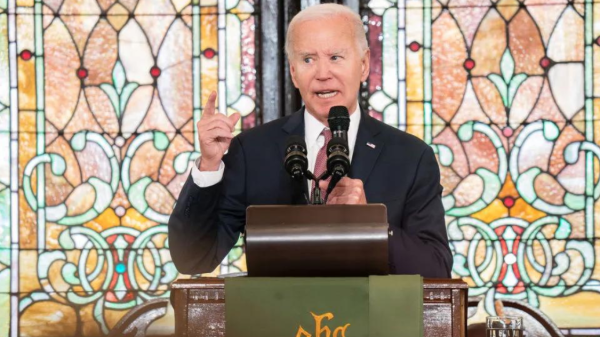USA (Transatlantic Today) – Two of the United States’ most important Middle East allies, Saudi Arabia and Israel, have seen significant shifts in their political environments recently. With strong ties to both countries, the Biden administration faces previously unheard-of difficulties because of differences in internal politics.
Saudi Crown Prince Mohammed bin Salman (MBS) has made vast reforms in Saudi Arabia, primarily targeting religious extremism. Conversely, Israeli Prime Minister Benjamin Netanyahu has included far-right elements in his government, which complicates Israel’s domestic and foreign policy.
Saudi Arabia’s transformation
Saudi Arabia has begun a radical social and economic revolution under the leadership of MBS, defying traditional conservative standards. Significant support for this reform agenda has grown, especially among Saudi women and youth, resulting in fundamental advancements on many levels.
Israel’s Political Dilemma
On the other hand, Netanyahu has distinguished his term in office with political ploys to hold onto power, such as coalitions with far-right groups. However, due to the deadlock over the Palestinian question, this approach has made it more difficult for Israel to take advantage of possible alliances in the area, especially with Saudi Arabia.
Biden Administration’s Challenge
According to Infobae, the Biden administration faces the complex task of balancing support for Israel with leveraging opportunities presented by Saudi Arabia’s reforms. However, Netanyahu’s political survival strategy and Israel’s internal turmoil threaten potential diplomatic breakthroughs.
Prospects of a Mutual Defense Treaty
Efforts to finalize a mutual defense treaty between the United States and Saudi Arabia are underway, with key points yet to be resolved. Normalization of relations between Saudi Arabia and Israel is a crucial component of this deal, provided that Israel complies with specific requirements over the Palestinian question.
Uncertain Future
The future is still unclear, as several factors affect the likelihood of a whole deal. The political climate inside Israel, continuing hostilities, and regional factors all add to the difficulty of the negotiations.
If the Biden administration tackle these challenges, a diplomatic breakthrough might be achievable, but only if Israel is willing to have sincere discussions and make amends with Israel. The result will ultimately affect US interests in the Middle East and its geopolitical landscape.









































